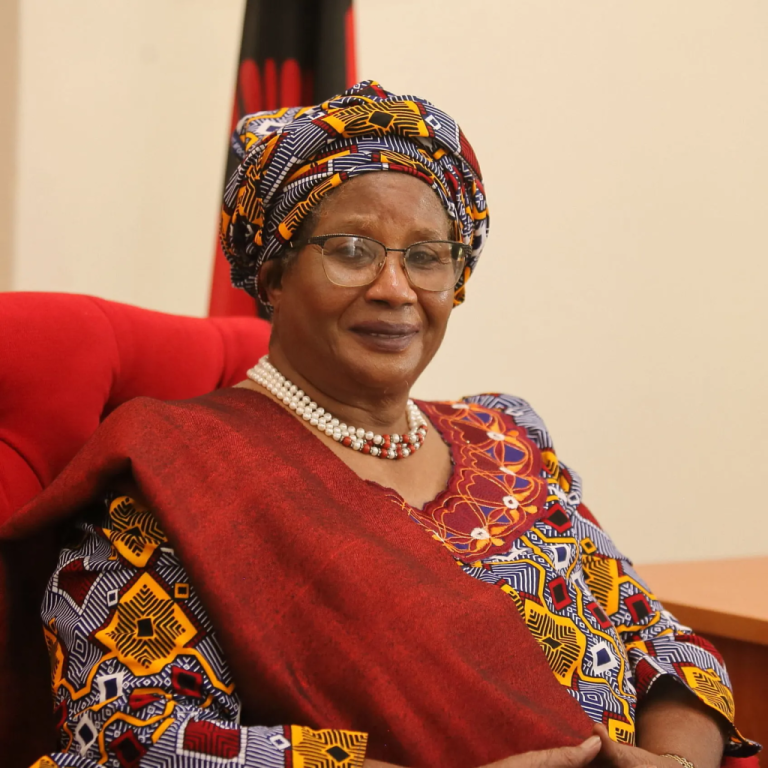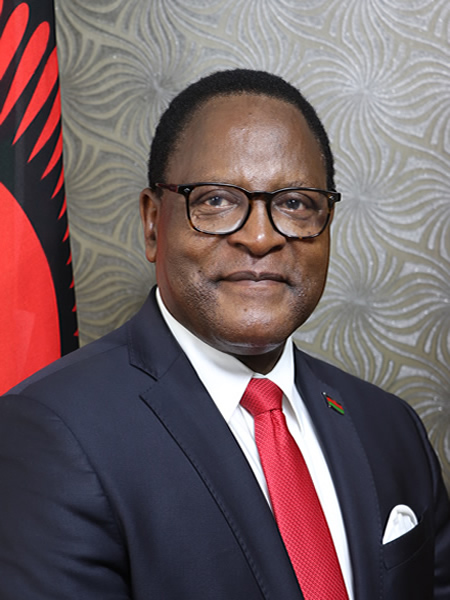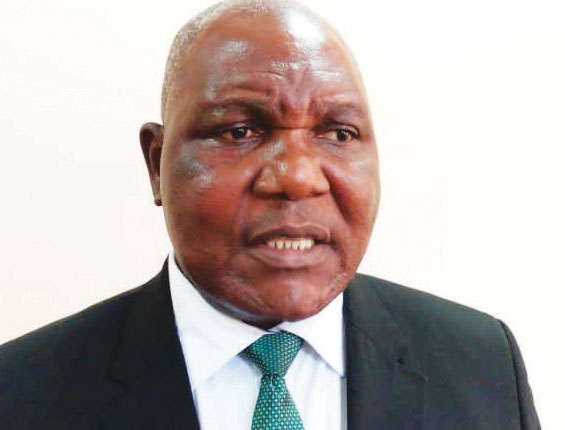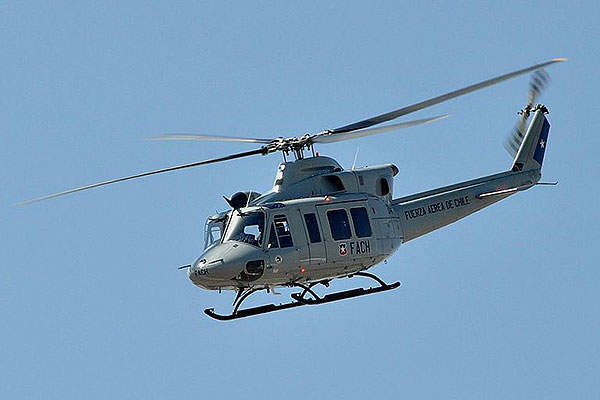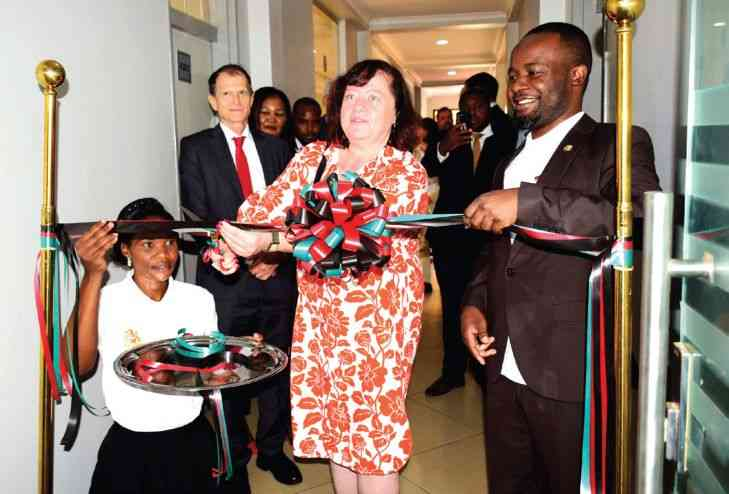PIJ details how Sattar turned military and police into multi-billion cash-cows
BY GOLDEN MATONGA
With national security providing perfect cover from public scrutiny, companies connected to businessman Zuneth Sattar received, in a decade, close to a trillion in public contracts.
British and Malawian law enforcement agencies are investigating Sattar for allegedly paying bribes to Malawian government officials to obtain most of these contracts, according to court files in Malawi and public statements released by the Anti-Corruption Bureau (ACB).
The Attorney General has debarred from all public procurement, Sattar-connected companies, and terminated existing contracts. Previously, the ACB suspended the police and MDF from dealing with a list of Sattar-connected companies as part of its wide-reaching investigation.
The Platform for Investigative Journalism (PIJ) has been reviewing government documents including contracts, law enforcement reviews, and spoke to multiple sources close to the Sattar investigation to understand the dealings between the Malawi-born businessman and government.
The investigation offers a birds’ eye view into how Sattar using legitimately signed contracts monopolized business and drained public coffers through endless schemes of overpriced contracts through a litany of companies, including some which appeared to have been established just in time before receiving massive payments from Malawi government agencies.
Sattar, 41, acting as a middleman or director for companies domiciled in Malawi, UK, Hong Kong, and UAE has come under investigation by the ACB for various contracts but was cleared in most of the investigations after the ACB decided to drop the investigations without pursuing all efforts.
Ultimately, the PIJ could not establish precise figure paid to businesses associated with Sattar—among them Malachite FZE, Xelite Strips, Xaviar Ltd, Top Prima Ltd and Pyrite General Trading, One Guard FZE, Ocean Investments Limited—but estimates the figure through information sourced from contracts, analysis written by anti-corruption authorities, estimates of value of similar contracts known publicly.
The figure reached by PIJ is potentially conservative considering most of the payments by Sattar are not known as they belong to military contracts.
According to the UK company register, previously Sattar only owned Xaviar Limited which he registered on 27th October 2014 and is based in Leicester.

| Quick glance at key known payments: |
| 66 billion kwacha from MDF between 2013 and 2017 through Xelite Strips, Malachite FZE, Rummage Pace, and Top Prima. |
| 14 billion kwacha from eight water cannons for police through Malachite FZE |
| Unknown billions for six water cannons for MDF through Malachite FZE |
| 9.7 billion kwacha from the Prisons deal through One Guard FZE |
| Unknown billions for food rations deal for police |
| Owed 14 billion by police for various services through Malachite FZE and Xavier Investment Ltd |
The military’s man
Sattar mostly operates as a middleman. Between 2013 and 2017, Sattar companies received just short of $81million in 17 payments for goods supposedly delivered to MPS and MDF, according to an analysis provided by an official who previously worked for Malawi’s Anti-Corruption Bureau (ACB), speaking on condition of anonymity.
Apart from uniforms and arms, Sattar was also a major supplier of food rations for Malawi Police Service (MPS) which sources at the Bureau confirms also came under investigation by both the ACB and NCA in UK for the exorbitant prices.
PIJ could not obtain details and costs of the contracts but from the food rations scandal involving Malawi Police Service and another businessman Zameer Karim, can estimate the costs to be in billions. A police spokesperson declined to comment, saying matters are under investigation.
We reached out to Sattar for comment via text and phone on the various findings of our investigation, but he did not respond to our request for comment.
Another analyst, previously close to Sattar investigation, estimated that Sattar pocketed $11 million illegitimately via overpricing from various contracts that the investigators reviewed.
Out of the payments, a former bureau prosecutor who analyzed Sattar’s payments—told PIJ, payments amounting to K117 billion were deemed prosecutable, meaning liable for criminal cases.
Part of the analysis cited by the various sources is based on the forensic investigation into the cashgate scandal of 2013 which led to the Baker Tilly report. The forensic investigation was funded by the British government.
According to the Baker Tilly report, in one instance, MDF made 4 payments to Top Prima and one to Rummage Pace totalling around $16m for anti-riot gear and riffles which was priced at approximately $1300 per riffle but was sold to MDF at a price about ten times the average prices. In that contract, the total overpriced was $11 million.
As exposed by PIJ, Sattar was contracted by police to supply water cannons at a cost of 14 billion kwacha (USD 1, 754 000 each). The water cannons have been paid for by both the Peter Mutharika and Lazarus Chakwera administrations while the cannons are yet to be delivered by the supplier.
The deal flouted several procurement laws, and you can read details about the procurement here.
Separately, Sattar was also contracted to supply eight water cannons, which to date he has not supplied. For MDF, Sattar had also a contract to supply six water cannons, which were delivered to the MDF.
The PIJ did not obtain the contract details of the MDF water cannons deal but using the prices Sattar quoted for police, an estimated 10, 524, 000 (USD 1, 754 000 each) or 9, 471, 600, 000 kwacha was paid.
“We were ripped off –and the vehicles were also useless because the military is not involved in crowd control,” MDF Commander Vincent Nundwe told PIJ in a recent interview. “They even bought us rubber bullets, gas canisters. We don’t throw teargas canisters at civilians, but they bought us those things,” he added. “It is part of corruption because you are giving the wrong equipment to the wrong entity.”

The PIJ sent questions to MDF and Sattar on the matter but did not get responses from both.
Further payments we have analysed emanate from an audit report the National Audit Office conducted in August 2020 on claims for arrears Malawi Police Service owed to various suppliers after the Tonse administration came to power.
The audit objective of the verification exercise was to ascertain authenticity of arrears amounting to K56, 333, 477, 236.30 as of June 2020.
After reviewing contract agreements, payment vouchers and other relevant supporting documents, audit reported that police owed local and foreign suppliers K8, 266, 515, 680.40 and USD 59, 451, 943 (at that time K46, 372, 515, 680.40 at the US rate of USD1=K780) respectively. The current exchange rate would put the money owed to foreign companies higher.
Out of K56 billion claims by the suppliers, Acting Auditor General Thomas Makiwa reported that he was able to certify arrears amounting to K11, 719, 355, 035.63 leaving in doubt the authenticity of the rest of the claims.
The audit report revealed that on the list of foreign suppliers, Sattar owned company, Malachite FZE was owed the highest amount at K10, 944, 960, 000.00 while his Xavier Ltd was owed K3, 767, 400, 000.00.
Rummage Pace and Top Prima
Sattar’s Top Prima Limited was formed in Hong Kong on 1 April 2012. Three months later, on 8 June 2012 Top Prima issued a proforma invoice to the Malawi Defence Force to supply 1,000 K2C rifles at a value of $5,490,000(K4,480, 807, 555.41) on 4 September 2012 two payments were made through Foreign Currency Transfers.
Between 4 September 2012 and 2 August 2013, the Government of Malawi made seven payments to Top Prima totalling at least MK 7,349,673,959 through Foreign Currency Transfers. No ODPP documents can be traced. Limited evidence of supply has been traced. No evidence of tendering or requests for proposals has been noted.
It is unclear how the Government of Malawi selected this business. No Bank Guarantees have been provided. Top Prima had by then no trading history in the supply of goods procured. The company would seem to be linked to Top Prima Korea Limited. The linked owner would seem to be a trader of goods and services, including tear gas and related items.
When the cashgate scandal erupted, Top Prima was paid billions for arms supplies just months after it was registered.
The company, like Top Prima, was also then based in Hong Kong. Both Rummage Pace and Top Prima were listed within the Hamriyah Free Enterprise Zone. But the company had no trace, whatsoever, according to auditors who produced the Baker Tilly report into cashgate—the biggest theft of public funds in Malawi history.
Between 23 October 2012 and 21 August 2013, Malawi government made five payments to Rummage Pace totalling at least MK 5,283,253,522 through Foreign Currency Transfers. The payments were not approved or supported by any documents like the public contracts’ regulator ODPP (Office of the Director of Public Prosecution, which is now called Public Procurement and Disposable of Assets Authority -PPDA) or tendering or requests for proposal.
On 15 August 2021, however, a single source tendering for the contract was approved by Ministers. Both Top Prima and Rummage Pace were to supply rifles.
No Bank Guarantees had been requested or provided. No company due diligence was performed prior to payment for a company that had no trading history in the supply of goods procured.
When auditors followed the company to Hong Kong, they discovered that Mr. Raju Lalwani, owner of Vector Indsutrial (sic) Co. Ltd—uses of the same address as Rummage Pace—have the same surname as Mr. Anil Lalwani whom they noted was registered as a director of Top Prima Ltd.
When auditors visited the military and the Malawi Revenue Authority (MRA), no evidence of shipment could be proved by MDF or MRA for inbound goods provided by Rummage Pace. (The ACB later said its officers were to find the goods at MDF).
“In our opinion,” concluded the auditors, “the company is fictitious and all payments to it should be noted as fraudulent and the five payments to Rummage Pace totalling at least MK 5,283,253,522 should be classified as theft of government funds unless evidence can be proven otherwise.”
At least 14 payments amounting to an estimated total of USD $50,788,572.45 (MK14,588,265,488.39) were made to Top Prima and Rummage Pace in transactions later characterized as cashgate. Documents for four of the payments cannot be traced to the Malawi Government Account or relate to returned FTCs caused by incorrect banking information.
Auditors reported that an initial request to clarify the situation with the RBM resulted in conflicting responses and at the time of case file handover, four transactions to the value of MK 3,915,007,791.20 still required further investigation and had been classified as ‘at risk FTC Bounced Transfers’. Those included two payments to Bank of India and Hang Seng Bank Limited, where the same FTC number was quoted.
The remaining confirmed payments obtained from Foreign Currency Transfer Forms noted a total of MK10, 673,257,697.19 paid by the Malawi Defence Force (MDF) and Malawi Police Service (MPS).
(Auditors did not follow the money trail in police payments, as it was out of the audit’s scope).
The payments related to Parka Jackets, Riot Control Equipment, and Combat Uniforms. A similar payment for Anti-Riot gear by MDF for a similar value was also made to Rummage Pace.
But auditors would soon discover an anomaly with one of the payments by the police. “Payment for Anti-Riot Gear is noted to be ‘payment on behalf of Xelite Strips’, it is not known why the MPS would make payment on behalf of another company. As such the remaining value of MK 3,125,347,020.59 is classified as ‘At Risk No Supporting evidence.
“Further work will be required on these payments,” jotted down an auditor.
Four payments totalling USD $16,366,000.00 (MK 5,313,865,583.20) were made via three bank accounts to Top Prima (three payments) and Rummage Pace (one payment) under the titles of K2C Rifles, Military Equipment, and Anti-Riot Gear.
All four payments related to purchasing of K2 and K2C rifles. 3,000 rifles arrived in four shipments between 14 November 2013 and 17 January 2014. This corresponds to the UN Arms Controls information for shipment by the Republic of Korea to Malawi for 2013.
Investigation into the price of the individual weapon, however, would suggest the Daewoo K2C is like the Colt M16A. A genuine Colt M16A has a manufacturer’s suggested retail price (MSRP) of USD $1,270 per unit, a higher quality precision Heckler Koch being priced at USD 1,800 per unit.
Discounts would apply for over 500 units with a potential price of USD $1,070 per unit.
“We believe our estimate of USD 1,500 per unit is an accurate reflection as such the GoM (Government of Malawi) has overpaid by USD $11,866,000.00 (MK 3,852,763,595.88). We believe a similar overpricing issue has occurred with the purchase of 4,000 magazine spare kits, however, the poor recording keeping makes it difficult to determine the actual content of the kits to accurately verify the price. We believe at least 50% of the purchase price is therefore at risk from overpayment being USD $970,000.00 (MK 332,587,198.00),” concluded the auditors.
According to shipment and UN Register of Conventional Arms evidence, on 15 August 2014, some 4,000 K2C Rifles and 1,100 K2 Rifles were imported into the country by Top Prima. The consignments arrived under manifest number 2014/81 with an invoice value of USD 2,719,000 (total USD 5,438,000). External price verification revealed a list price per weapon of USD 1,500.
“In the absence of any competitive international tender and linked to the restrictive single source tendering we believe these purchases to be in excess of their true cost by a Page 32 of 124 Cashgate Overarching Findings Report to the Auditor General Thursday, 25 September 2014 minimum of USD $3,938 per rifle (265%) resulting in a loss to the Malawi Government of USD $3,938,000 in relation to the January 2014 shipment alone,” concluded the Baker Tilly audit report.
Ending the probe
The NCA cooperation with ACB kicked in at the same time Zuneth Sattar’s companies came into the limelight over cashgate. Then, ACB deputy director Reyneck Matemba signed a cooperation agreement with NCA to cooperate with the ACB.
As part of the agreement, the NCA sent two officers to work with Malawi government agencies, one assigned to the ACB, and another assigned to work with the Directorate of Public Prosecutions.
More officers will later follow, but also other forms of support such as equipment used to extract data from phones or computers of suspects, among others, arrived at the Bureau.
Within months of the agreement coming into force, the NCA’s first request from the Bureau was information about Zuneth Sattar’s contracts with the Malawi government, flagged out in the Baker Tilly report.
“The NCA wanted to know if Sattar had delivered the items, the ACB launched an investigation and reported back that the items were delivered,” said the source, who worked at the Bureau during the tenure of Director Reyneck Matemba and predecessor Lukas Kondowe.
The Baker Tilly report revealed question marks over both Rummage Pace and Top Prima’s credibility as companies and recommended further investigations. But the ACB never conducted any investigation into the companies from the alleged countries they were based.
According to a former Bureau insider, as part of the cashgate investigation, the bureau requested further evidence on the nature of Sattar’s UAE and Hong Kong-registered companies but received no support from either country. Apart from the arms supplies, investigations into Sattar were also focusing increasingly on the food rations supplies, according to a former insider.
Searching for such information online was not an option. “The UAE is a nightmare” explained a UK-based expert in money laundering Richard Smith, in an interview with PIJ, “I don’t think the UAE company registers (there are lots of different ones, crazy system) have much public information.”
The only option available was for the bureau to send a team into the UAE to investigate the companies. “When we wrote UAE, the feedback that came was, “if you come here, we cannot guarantee your safety,” said an ex-bureau official speaking on condition of anonymity as he has no authorization to speak.
“It was a veiled threat, so we decided against proceeding to go and investigate,” said the source.
Meanwhile, the then Attorney General Kalekeni Kaphale told the media back home—in remarks that the Bureau will later use as reason to stop the investigation—overpricing by Sattar was not a crime.
“My reading of the report, which I have done several times, shows that the main issue in the transactions involving the two companies was overpricing,” Kaphale told the Malawi News.
Kaphale added: “Prices are agreed by two parties. The government normally does not buy from the source. It buys from middlemen. Middlemen usually quote their prices higher.”
The ACB abandoned any Sattar investigations.
Currently, those decisions to clear Sattar are now also under investigation by the ACB and NCA, according to sources close to the current investigation.

But in an interview, former Attorney General Kalekeni Kaphale defended his position on the previous ACB investigation, adding he never issued a legal opinion to ACB advising it on how to handle the investigation.
“I could only have advised ACB on a request, and if I did, my response must be a written one and well contextualized,” said Kaphale.
We reached out to former Director Matemba but declined to comment on the matter, referring PIJ to the current leadership of the Bureau.
Malachite FZE
Following cashgate—and as the auditors questioned the authenticity of his companies in Hong Kong—Sattar moved his operations to the United Arab Emirates (UAE) and renamed his company Rummage Pace General Trading LLC. A majority of the Sattar companies would have similar variations on the names.
Another new Sattar registered company— again UAE registered— Malachite FZE, would soon be in business with the Malawi government, according to analysis by investigating agencies sourced by the PIJ.
According to a seasoned financial analyst who revealed Sattar transactions with the government, in some transactions, Malachite FZE basically took over contracts previously belonging to Rummage Pace and Top Prima.
The company was contracted by MDF to supply 100 000 cartridges for launchers, on 12 August 2014. Rummage Pace was again, on 25th November 2014, contracted to supply anti-riot equipment to police.
On 09 November 2016, Malachite FZE procured ammunition for police, and a year later, on 09 August 2017, the same company, Malachite FZE was contracted to supply 100, 000 cartilages for launchers and 46 000 38MM to the military.
In 2016, Malachite FZE supplied grossly overpriced six water cannons to Malawi Defence Force was also contracted by the police to supply eight water cannons which the Peter Mutharika and Lazarus Chakwera administrations have been paying for but are yet to be delivered in the country.
In December, ACB suspended MDF and police from dealing with Malachite FZE, Xaviar, Xelite Strips Ltd, and Crimson Trading. The majority of the contracts were signed in 2019 and 2020 and are estimated to be worth billions.
One Guard FZE
A 2020 PIJ investigation revealed how the Ministry of Homeland security, between February 2019 and June 2020, during the twilight of the Mutharika tenure, was embroiled in a seemingly dubious contract for supply of items to the country’s prisons.
A total of K9.7 billion (some $13 million) was paid from the country’s central bank for low-value payments—such as steel, plates, cups, underwear, slippers, neckties, whistles, cuffs, blankets, socks, vests, belts— through eight contracts.
The physical address of the supplier—One Guard FZE, just like Rummage Pace FZE and Malachite FZE registered in the UAE— could not be traced, Deloitte auditors hired by the Central bank after change of government following up on the PIJ investigation which they cited in their audit report, found out.
Those eight contracts are currently under investigation by the ACB, a spokesperson recently confirmed.
According to our fresh investigation, One Guard FZE is connected to Zuneth Sattar as either a beneficial owner or an agent.
“Investigations are ready and ACB is ready to pounce on the matter any time soon,” added a source close to the official ACB investigation.
We asked both the Malawi Prison Services and Sattar about the ownership of One Guard Service, or whether Sattar was the agent of the company. Sattar opted not to respond to questions on the matter.
Spokesperson for Prisons Service, Evans Banda wrote back: “the Issue is under investigation by the ACB. Ask the ACB if they have information. They recorded statements of key players and are better placed.”
“And again, only an audit report can certify if all goods were delivered.”
“We also noted that prices that were being charged for some items were charged significantly higher than the prevailing market rates, which is contrary to the expectation of economies of scale would apply to the quantities in which the items were being purchased,” Deloitte auditors concluded.
The auditors selected three items to make an illustration: a stainless-steel food tray costing $18 on Amazon was being quoted as $110 by One Guard FZE. Ali Baba sold the same item at just $7.26. A metal detector scanner available on Amazon for $182, on Ditector.com for $159, and on Detective Store for $179, was being quoted by One Guard FZE at $480.
As part of our basic background checks on the vendor, auditors searched the internet to establish whether One Guard FZE had any presence and ascertain its credibility as a supplier.
“Upon doing a search of Google, there were no search results related to One Guard FZE within the first 10 pages of results viewed. Upon visiting the website of One Guard FZE as was indicated on the invoice……we noted that while the site was functioning, it had no content and was filled with stock images and placeholder text. There were also dummy phone numbers and contact details which pointed to locations in the United States of America, rather than the United Arab Emirates, as well as dummy reviews from fictitious persons, as illustrated below…” mused the auditors.
The findings echoed what Baker Tilly auditors found about companies linked to Sattar, Rummage Pace.
The One Guard FZE payments highlight corrosive powers that allowed the massive payments to go ahead despite red flags being raised by various stakeholders about the credibility of the company and the sums of the contracts.
RBM officials involved in the transactions when interviewed (Mr. Tisungeni Makawa, Ms. Fanny Gwesele, and Ms. Mphatso Mazinga), told auditors they noted some inconsistencies and irregularities but “they were powerless given that the transaction had received all the necessary approvals from the MoFEPD as well as the Accountant General (AG).”
When Molly Stambuli, RBM Director of Finance & Accounting, received the request to pay One Guard FZE U552.99 million on 13 March 2020, Mr. Rodrick Wiyo, a senior director, reached out to the Accountant General Sungani Mandala stating that they had noted certain inconsistencies with the invoices presented and needed clarification on whether to proceed with the payments.
The Accountant General reportedly contacted the Ministry of Homeland Security, which provided an “explanation” on the irregularities and asked the RBM to proceed with the payment.
Today, the ACB has reviewed the case and once again discovered Sattar was the beneficial owner of the UAE company registered in the name of his associates.
According to sources within the police service, although most of the goods and items delivered by Sattar are overpriced, the businessman has a reputation for delivering contracted goods, unlike other suppliers.
A watershed moment
In an interview, governance watchdog, Youth and Society (YAS) Executive Director, Charles Kajoloweka, said the Sattar investigation was a watershed moment for the country.

“There are a few things here. It’s a watershed moment for Malawi when it comes to organized corruption. It’s a huge opportunity to deal with corruption decisively. We should not be naïve to think this is one case, there must be similar extractive activities, stealing public relations,” said Kajoloweka.
The investigation is also an opportunity to strengthen the governance institutions tasked with fighting corruption whose lack of coordination, so far, argues Kajoloweka, has been grossly exposed.
Said Kajoloweka: “You can see so far poor coordination in the fight against corruption. We can also revisit to review the law, for example, the ACB’s independence and its impact on the practice of obtaining consent to prosecute cases from DPP. The 2002 law commission report recommended that we need to remove the law mandating the ACB to obtain consent from the DPP.”
As further argued by Kajoloweka, the accountability of the law enforcing agencies entrusted with the responsibility to hold Sattar accountable is also vital.
“At the end of the day, they must also be held accountable by Malawians. They must be transparent and accountable in every process; the civil society’s role is to sustain the limelight of this case. The challenge now is that there is no information that is available to the public, and that is undermining the citizen’s urgency on the matter.
A member of the diplomatic community, representing a western power, told PIJ the Sattar issue will not be swept under the carpet.
“It’s not going to go away. Everyone is watching just how the matter is going to be handled,” said the envoy.
A governance expert, who previously worked for a western institution that supports the fight against corruption in Malawi, says Sattar’s operations were flagged out a long time ago.
“I recall him very well, and long recognized him as an operator who freely compromised officials and politicians in Malawi. For me, the unanswered question is where the money went, after the massive overpayments, following the money is good advice. Take the water canon deal, for example, many people must have been paid for the cooperation. Contracts like this one should have been approved by lawyers in the AG’s office and vetted by the ACB, but these measures appear to have been ignored,” said the official.
While the anti-corruption has been drawing closer and closer to Sattar, the businessman is fighting back—in the courts and elsewhere. And his companies come under scrutiny, he has not abandoned one of the strategies that have served him well for so long, establishing more shell companies.
British authorities restrained accounts of his Xavier Limited in 2016. On 13 April 2017, Sattar registered the similar-sounding Xaviar Investments Limited. In October 2021, Sattar registered new companies: David Huwes was registered on 4th October 2021 at the same address in Leicester (Studio 4 Burton Street, Leicester LE11TB), David Hues Cleaning Service Ltd, David Huwes Cleaning Services Ltd, David Hues Properties Ltd, Xotics Limited, David Huwes Holdings Ltd, David Hues Ltd, David Hues Holdings Ltd, on the same day.
Sattar is not going without a fight.



